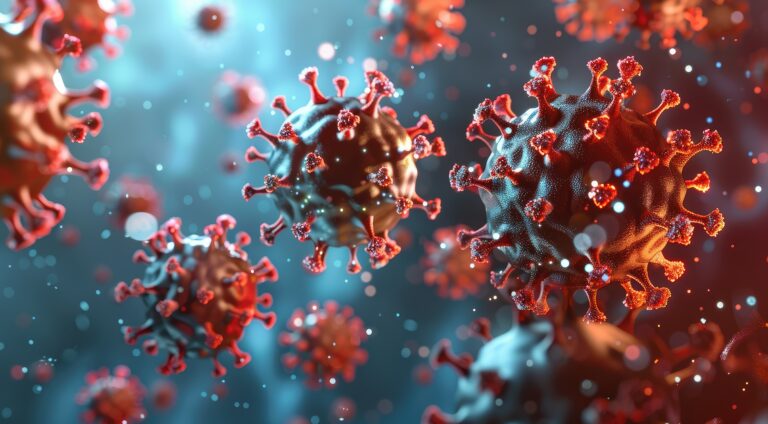Many people are familiar with herpes outbreaks occurring in the genital or oral areas, but did you know it’s also possible to get herpes on your buttocks?
While not as common, herpes simplex virus (HSV) infections can indeed cause symptoms on the butt cheeks. In this article, we’ll explore how both genital herpes (HSV-2) and, less frequently, oral herpes (HSV-1) may lead to herpes outbreaks on your derriere.
Understanding Genital Herpes and Buttock Outbreaks
To fully understand how herpes can affect your buttocks, we first need to explore the nature of genital herpes.
Caused by the herpes simplex virus type 2 (HSV-2), genital herpes is a sexually transmitted infection characterized by painful sores or blisters in the genital region. The virus spreads through sexual contact, including vaginal, anal, and oral sex, with a person who has HSV-2.
After the initial genital herpes infection, which often causes the most severe symptoms, the virus remains in the body, lying dormant in nerve cells. From time to time, the virus can reactivate, leading to recurrent outbreaks.
It’s worth noting that these repeat flare-ups tend to be milder than the first episode and usually become less frequent as time goes on.
Can Genital Herpes Cause Herpes on the Butt?
Yes, genital herpes can cause outbreaks on the buttocks. Here are a few ways HSV-2 can spread to this area:
Viral Shedding
Even when no visible sores are present, the herpes virus can be active on the skin’s surface, known as viral shedding. If the virus sheds in the perianal area (the skin around the anus), it can spread to the nearby buttocks.
Autoinoculation
An infected individual can accidentally spread the virus from one part of their body to another through touch, a process called autoinoculation. For example, if you have an active genital herpes outbreak and touch the sores, you could unknowingly transfer the virus to your buttocks if you then touch that area without washing your hands first.
Sexual Contact
During sexual activity, the buttocks can come into contact with the genital area. If your partner has an active genital herpes outbreak or is experiencing viral shedding, the virus can be transmitted to your buttocks through this skin-to-skin contact.
Can Oral Herpes Cause Herpes on the Butt?
While less common, it is possible for oral herpes (HSV-1) to cause outbreaks on the buttocks. This can occur through oral-anal contact, also known as analingus or rimming. If a person with an active oral herpes outbreak performs anilingus on a partner, they can potentially transmit the virus to the receiver’s perianal area and buttocks.
So, yes. It can happen. However, genital-to-buttock transmission of HSV-2 remains the most common scenario.
Symptoms of Herpes on the Buttocks
Herpes outbreaks on the buttocks can mimic the symptoms of genital herpes. These may include:
- Small, painful blisters or sores on the buttocks or in the crease between the buttocks and thighs (called the gluteal fold)
- Itching, burning, or tingling sensations before the sores appear
- Ulcers that form when the blisters rupture
- Scabs that develop as the ulcers heal
In some cases, people may also experience flu-like symptoms such as fever, body aches, and swollen lymph nodes during an outbreak.
Diagnosis and Treatment
If you think you could have herpes on your buttocks, don’t hesitate to consult with a healthcare provider. They’ll perform a physical exam and may take a sample from the sores for laboratory testing to confirm the presence of HSV.
While there is no cure for herpes, antiviral medications can help manage the infection. These medications — like acyclovir, valacyclovir, and famciclovir — can shorten the duration of outbreaks, reduce symptom severity, and decrease the frequency of recurrences.
Your doctor may prescribe them for episodic treatment (taken during an outbreak) or as daily suppressive therapy to prevent future outbreaks.
In addition to antiviral drugs, self-care measures can help ease discomfort during an outbreak:
- Keep the affected area clean and dry.
- Wear loose, cotton underwear to minimize friction and irritation.
- Apply cool compresses or ice packs to soothe pain and itching.
- Take an over-the-counter pain reliever like acetaminophen or ibuprofen.
- Soak in a warm bath with Epsom salts to promote healing.
Prevention and Safe Sex Practices
If you or your partner has genital herpes, there are steps you can take to reduce the risk of transmission:
- Use condoms during vaginal, anal, and oral sex. While condoms do not provide complete protection against herpes, they can significantly reduce the risk of transmission.
- Avoid sexual activity during active outbreaks. The risk of spreading the virus is highest when sores are present.
- Consider suppressive therapy. Taking daily antiviral medication can significantly reduce the likelihood of transmitting the virus to a partner.
- Practice good hygiene. Wash your hands thoroughly after touching any sores, and avoid touching other parts of your body to prevent autoinoculation.
Remember, open communication with your sexual partners is key. Discuss your herpes status, practice safe sex, and work with your healthcare provider to manage the infection.
The Bottom Line
Notice bumps on your buttocks? Concerned it might be herpes? Trust your instincts and take action. Visit a local STD testing center to get the answers. Your health is worth it!

